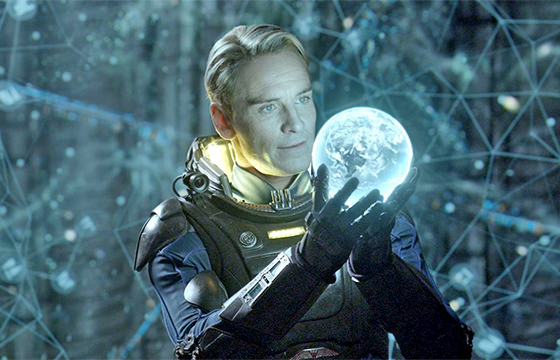
Foreign Minister Julie Bishop considers raising the Location Offset in 2016 budget as Sir Ridley Scott’s next Alien film is welcomed to Sydney.

Foreign Minister Julie Bishop considers raising the Location Offset in 2016 budget as Sir Ridley Scott’s next Alien film is welcomed to Sydney.
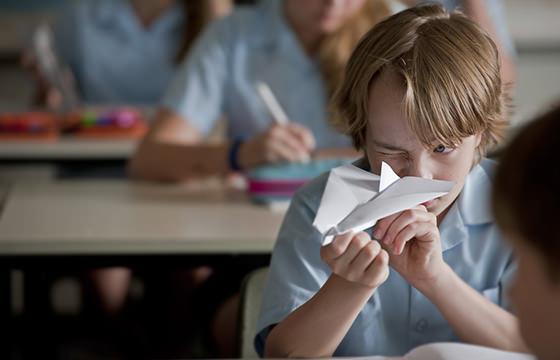
This year, five Aussie films will battle it out to win the first People’s Choice Award for Favourite Australian Film at the AACTAs. Vote now!
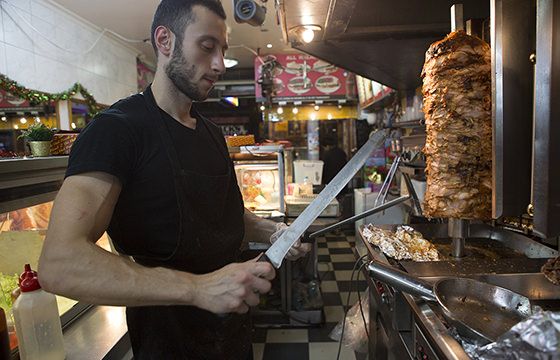
Behind the counters of ubiquitous Australian kebab shops, a treasure trove of drama and heart was just waiting to be discovered for SBS doco Kebab Kings.
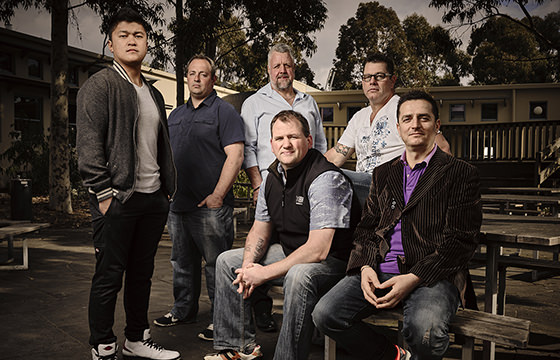
A group of men shake hands, sipping cups of coffee, catching up on each other’s week. Some have tattoos, some are clean shaven, while others sit in silence, hands in pockets. They’re all there, in the same room in Melbourne, for Heavy M.E.T.A.L.
No, not the music. The ‘M.E.T.A.L’ actually stands for Men’s Education Towards Anger and Life. Because each of these men have one thing in common: they have all arrived at this sixteen-week course, aimed at fathers who are, or risk being, perpetrators of family violence. And they are there to change their attitudes and behaviour towards women.
But there’s another person in the room. A young woman, armed with a camera. Director Sophie Wiesner. The Australian Film Television and Radio School (AFTRS) graduate has been following the stories these men, filming over 100 hours of footage, which after four months, she will begin to turn into the documentary Call Me Dad.
For Wiesner, there’s something personal about Call Me Dad. The idea came to her while she was interviewing people at a father’s centre about quitting smoking for a cancer brochure and something about it stuck.
“What made me persist with it was there is family violence in my own family,” she says.
“My mother’s father was very abusive and I grew up with stories about his violence and alcoholism and so I guess on some level I really wanted to know what might have been going on for him and their family.”
It took some time and a few false starts before they were able to find a service provider like Heavy M.E.T.A.L and founder/facilitator David Nugent, who was willing to work with them.
“I always thought there was this tremendous appetite from participants to share their story. The challenge was with the organisations that work with these participants who were understandably very protective of the families they work with, because in many cases they’re very vulnerable,” Wiesner says.
Call Me Dad, which airs on ABC on 26 November, follows the stories of a group of abusive fathers, and several in particular, as Heavy M.E.T.A.L focuses on making them accountable for their behaviour.
The timing is no coincidence.
November is Domestic and Family Violence Prevention Month and arrives with a wave of support and discussion behind it.
It’s hard to decipher exactly when domestic violence entered the zeitgeist, except that it’s clear it has.
In January, Rosie Batty was awarded Australian of the Year for giving a voice to thousands of victims of domestic violence through her own tragic story and her continued championing of efforts to stop violence in homes.
It’s an issue Prime Minister Malcolm Turnbull turned his sights to in the first weeks of his leadership, saying in late September that violence against women “one of the great shames of Australia. It is a national disgrace”. He said disrespecting women was “unAustralian” and called for a cultural change.
For Call Me Dad, it became clear the film had greater impact than they first imagined when it was selected for the inaugural Good Pitch Australia in 2014 – an event that brings filmmakers like Wiesner together with NGOs, foundations, philanthropists, social entrepreneurs, and potential corporate and brand partners.
“That really clarified the intention and galvanised the project as something that was bigger than the sum of its parts,” Screen Australia’s Documentary Investment/Development Manager Sam Griffin says.
With the partnership of Good Pitch and the Documentary Australian Foundation, Wiesner says they have an even greater chance of enacting change.
She says they are launching a campaign so that Call Me Dad will be available for people to host their own screenings, but also to encourage groups to connect with partners Fair Agenda and White Ribbon.
“This screening campaign will make sure the film has impact and that’s an amazing opportunity to catalyse some positive change,” she says.
For Griffin, getting behind a story like Call Me Dad from early-on was almost a no-brainer.
Griffin had first met Wiesner during her time at AFTRS, saying it was clear back then she was talented. But it’s that combination of Call Me Dad’s story and the lengths that Wiesner had gone to achieve it that make it so significant.
“It’s an important film; it’s an important issue and Sophie had put in a lot of work and gained the trust of these men, which we acknowledge is not easy to do,” she says.
“Here’s a group of men who are willing to talk about their feelings and acknowledge the challenges in doing so and that is a rare thing, but they’re also willing to do that on camera. That’s really a testament to Sophie’s skills as a director, and as a person.
Wiesner says she never felt in danger, but was always mindful of her safety during the months of filming in Melbourne. She says she has kept in contact with Nugent and the men featured within the film and credit them for taking a risk and trusting her in the first place.
“In each case life has continued for them and there have been positive and negative developments,” she says. “Change is actually slow and often doesn’t move in just one direction…. My observation is change is something they need to commit to lifelong really and it’s not something where people can think that they’re fixed – it’s consistent work.”
After so long talking about Call Me Dad, Wiesner is keen to finally get the film in front of audiences. She says all involved have seen the doco and are on the whole supportive, but understandably nervous about the response.
For Wiesner, Call Me Dad deepens our understanding of family violence: its impact and the types of abuse that can characterise a relationship.
“I think it points towards one of many tools that are needed to stop the harm,” she says.
“Working with perpetrators is really difficult and complex work but unless we look at the people who are choosing to be abusive then we’re not going to prevent people being harmed in the way that they are.”
Call Me Dad will have its premiere on 26 November, 8.30pm on ABC. Visit www.callmedadfilm.com to find out more.
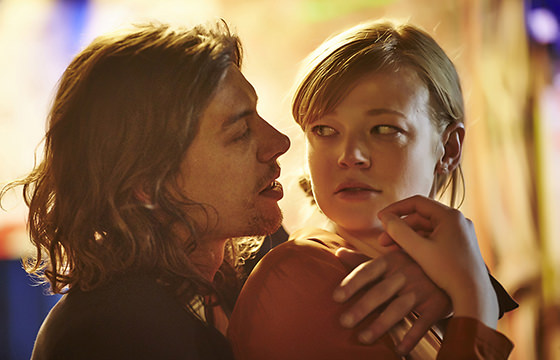
Television drama isn’t changing, it’s already changed, director Glendyn Ivin says.
With moody, atmospheric series such as The Code and Top of the Lake, television has become more cinematic in look and is presenting itself as a strong alternative to the movies.
“It’s also not just the look, but in the storytelling and the kind of storytelling. It’s smarter if you like,” Ivin says.
“Whereas it’s very hard to get an audience to go to the cinema to see that sort of story, it’s far easier and the audience is much greater, when it’s delivered either free-to-air, or catching up on streaming services later on.
Traditionally, when you talked about the notion of exploring characters in a long-form production, you were referring to a 90 minute feature film. But Ivin says he’s relishing the chance to tell stories over a number of television episodes like with The Beautiful Lie, a modern-day adaptation of Anna Karenina.
“If you look at The Beautiful Lie, it feels cinematic, it feels like it could be a film but it goes for six hours,” he says of the Melbourne-set show starring Sarah Snook.
“So whether its six hours or 13 hours, long-form television series feel like the new way of telling dramatic stories, particularly in Australia.”
And as an audience member, it’s also exciting.
Ivin, a self-confessed Mad Men fan, says even the notion of ‘binge-watching’ was unheard of just a few years back.
“It’s such an unusual term, but being able to tell a story like that and being able to watch it when and how you watch it, it’s so much better for the audience… the fact that streaming has provided a multitude of different ways to consuming good storytelling, (shows) we are in a golden age of television.”
Ivin directed the 2009 feature film Last Ride, but the vast majority of his work has been in TV, working with producer John Edwards on Offspring, Puberty Blues, TV movie Beaconsfield and miniseries Gallipoli.
It was actually that collaboration that led to The Beautiful Lie.
While working in the dark editing suite on Gallipoli and dealing with the heaviness of war stories, Edwards would keep raving about a new project screenwriter Alice Bell was writing.
“I think he was just tempting me with it or baiting me,” Ivin says, particularly because Edward knew how much he enjoyed working with Bell (who was a writer on Puberty Blues).
Toward the end of 2014, Ivin got his hands on a screenplay and by March filming had kicked off.
Ivin, who directs three of the six episodes, says when dealing with adaptations like The Beautiful Lie or Puberty Blues he doesn’t necessarily feel like he has to stick to the story religiously.
“Great adaptations aren’t just saying ‘oh they’ve got the story right’, but that they’ve got the feel, the energy and the spirit of the text,” he says.
“For me, trying to capture the way that someone felt when they read the book is just as important.”
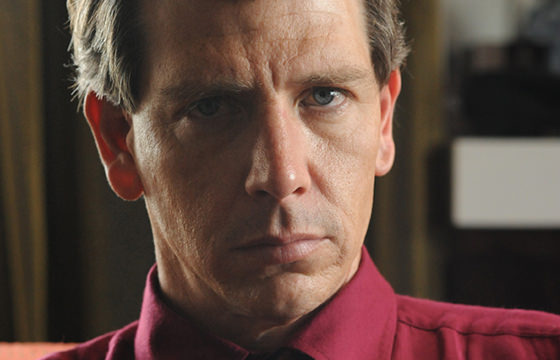
It’s no wonder people question if there’s something in the water here in Australia.
Home and Away alone has been the launching pad for mega-stars including Chris Hemsworth, Guy Pearce and Isla Fisher (including a few of the names on this list).
But not all Aussies flutter to Hollywood just for film.
In this new Golden Age of Television, it’s no surprise to see Australian talent packing out the credits of top American, British and Australian series alike.
When he’s not starring in Australian flicks like Red Dog and superb sci-fi Predestination, Noah Taylor can be seen in smash hit Game of Thrones and Peaky Blinders, as well as a variety of Hollywood blockbusters.
On the flip side, Cate Blanchett is currently getting Oscar buzz for her role in Carol, but is returning home to develop and direct new Australian TV series Stateless.
From Simon Baker (The Mentalist) to Ryan Kwanten (True Blood), there’s no shortage of Australian success stories on the small screen. Even better, the majority of these names don’t forget their Aussie heritage, returning to our shores to continue making home-grown stories.
Here are just a few examples of Aussies dazzling us with their extraordinary talent.
Once described as a man with “hangdog appeal”, Mendelsohn has a knack for playing unhinged or haunted characters (just try and think of his Animal Kingdom performance without a shiver).
And in the wake of David Michod’s crime drama, the US is finally cottoning onto what a talent Mendelsohn is. Aside from high-profile film roles, including a gig in The Dark Knight Rises, he starred in the Netflix original series Bloodline, scoring an Emmy nod for his performance and securing a spot on season two.
But Australians have long known Mendelsohn is hot property. He started out (as many Aussie actors do) on Neighbours, and had roles on popular series The Secret Life of Us, as well as Love My Way with Claudia Karvan and Tangled.
Another Animal Kingdom alumnus, Weaver’s career in Hollywood has also skyrocketed since her Academy Award-nominated role as matriarch Janine ‘Smurf’ Cody.
Following her acclaimed turn in Silver Linings Playbook with Jennifer Lawrence, Weaver is now starring in the Aussie heart-warmer Last Cab to Darwin. However, she is also carving it up on the small screen too. She scored a role on the series Blunt Talk, produced by Patrick Stewart and Family Guy’s Seth MacFarlane, about a British newscaster (Stewart) who moves to Los Angeles. Season two was picked up before the first season even went to air.
Not one to forget her roots, Weaver returned home to film Foxtel’s new six part mini-series Secret City set to air in 2016. Weaver joined the cast as a powerbroker in the Australian Labor Party in the “compelling and intriguing Australian political drama”.
Yes, that Emmy Award-winning, captivating and chilling opening credits to HBO hit drama True Detective was created by an Australian – by Brisbane digital artist Patrick Clair, to be exact.
He also concocted the moody, blood-draped imagery of the intro to Netflix superhero series Daredevil, and no surprise, was enlisted to create the opening for the second series of True Detective as well.
But the 33-year-old first made his mark in Australian TV on programs such asHungry Beast, with film critic Marc Fennell (who still has high praise for Clair), and The Chaser.
Perth-born George is arguably one of Australia’s most successful TV stars. Her enviable career began back in 1993 with Home and Away, before she was snapped up by Hollywood, appearing in the hit series Friends, Alias, Grey’s Anatomy, and most recently in The Good Wife.
Her controversial part as Rosie (the mother of the slapped child) in Aussie series The Slap was met with wide acclaim. So much so, that when the US bought the rights for their own take on the tale, George was recast in the role.
You would be forgiven for not realising Angus Sampson was an Aussie in his latest role. The hard-working thespian sports a solid Minnesota accent as Bear Gerhardt in season two of Fargo – the critically-acclaimed series inspired by the film.
But many would recognise Sampson, who apart from appearing in Insidious andInsidious: Chapter 2 has starred in a wealth of Australian film and TV.
This year there was a role in the blockbuster Mad Max: Fury Road, but he has also appeared in everything from Paper Giants and Beaconsfield, to horror flick100 Bloody Acres. Sampson also starred and co-directed The Mule – one of the first films in Australia to try a VOD release.
Australian production designer Deborah Riley has been spending a lot of time in Iceland and Spain lately, having taken over as lead production designer on the hit series Game of Thrones ahead of series four.
Her talent in creating Westeros and the look of new locations like Dorne meant Riley was recognised with an International Emmy for her efforts this year.
You can also catch her work in many homegrown films, including Jindabyne andMoulin Rouge!
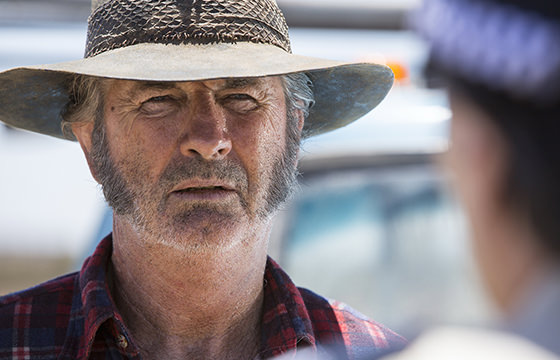
It’s hard to believe it’s been a decade since Wolf Creek first hit cinema screens, earning fans like Quentin Tarantino and leaving audiences (and many tourists) quaking in their seats.
Here’s a look at what those three stranded backpackers, director Greg McLean and Mick Taylor himself have been up to in the years since.
The cult status of Wolf Creek is so enormous, that actor John Jarratt is almost daily recognised as the man who played serial killer Mick Taylor. Even more so at the moment, with Jarratt sporting the muttonchops and tattoos again for filming on a new Wolf Creek TV series, commissioned by SVOD service Stan. In the six-part series, Mick Taylor targets an American tourist family, but the tables are turned when 19-year-old Eve (Lucy Fry) survives the massacre and embarks on a mission of revenge.
It’s not the first time Jarratt’s revisited the iconic character – the sequel Wolf Creek 2 was released back in 2013.
Jarratt has been keeping busy in the past decade, appearing in everything from croc-horror flick Rogue, to gory comedy 100 Bloody Acres (sending up his Mick Taylor stereotype), to Baz Luhrmann’s Australia and his mate Tarantino’s Django Unchained.
Jarratt also turned his hand to directing this year with the comedy thriller StalkHer, in which he also starred in.
Writer/director Greg McLean followed up the success of Wolf Creek, with another nail-biter, the killer croc flick Rogue, before getting back into the fray with Wolf Creek 2. Tonally different, the sequel he claimed was more of a chase flick than the all-out horror of the first film.
Fans also got more of a glimpse into Mick Taylor’s backstory when McLean co-wrote two novels Wolf Creek: Origin and Wolf Creek: Desolation Game.
As well as work on the upcoming Wolf Creek series for Stan, McLean has directed a supernatural horror thriller in the US called 6 Miranda Drive.
Since playing the doomed backpacker Liz, Cassandra Magrath has appeared in guest roles on a wealth of Australian television series, including Neighbours, Miss Fisher’s Murder Mysteries, House Husbands, Winners & Losers and Utopia.
Most recently, audiences would have seen Magrath as Hayley on TV series Wentworth Prison and as Jackie on Footballer Wants a Wife. Next up is a role in upcoming horror movie Scare Campaign, by the filmmakers of 100 Bloody Acres, Colin and Cameron Cairns.
The face on the chilling and iconic poster of Wolf Creek, Kestie Morassi followed up her performance in the horror flick with a role in the first series of Underbelly. She played Zarah Garde-Wilson, an Australian solicitor who represented some of Victoria’s most prominent underworld figures including Carl Williams and Tony Mokbel.
Morassi also starred in TV series Satisfaction, film The Wedding Party with Josh Lucas and Isabel Lucas, and has had guest roles in Offspring season one as well as popular ABC series The Doctor Blake Mysteries.
A self-confessed scaredy-cat when it comes to horror movies, Nathan Phillips has mainly appeared in movie roles since playing backpacker Ben Mitchell. Most recently, he appeared in Australian flick These Final Hours, which screened at Cannes Film Festival as well as US series The Bridge.
His credits also include Chernobyl Diaries, Aussie films Summer Coda and Balibo as well as Snakes on a Plane.
** Wolf Creek the TV series is currently in production for Stan, funded by Screen Australia.
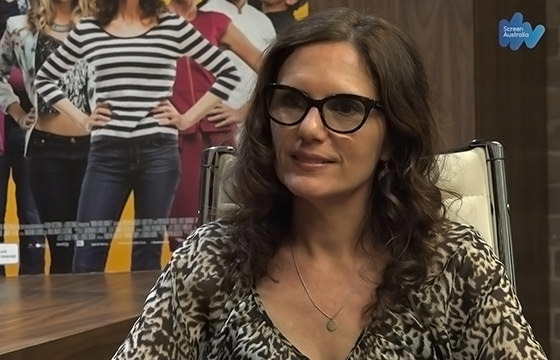
Writer, producer and star of Now Add Honey, Robyn Butler is one half of the husband and wife team that brought us Upper Middle Bogan and Little Lunch, the other half, Wayne Hope, directs. Now Add Honey is the dynamic duo’s first foray into film. The film, also starring Portia de Rossi, Lucy Fry and Hamish Blake, tackles the subject of women and girls’ body image, delivering a powerful message and plenty of laughs.
Now Add Honey is out across Australia from Thursday 5 November 2015.
Like Now Add Honey on Facebook to keep up to date on the latest.
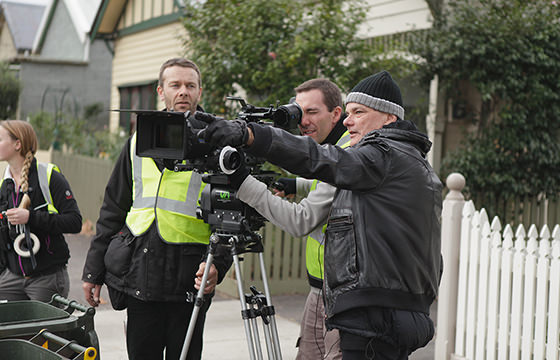
Kelli Cross is spending 10 weeks on attachment with director Rachel Perkins on Jasper Jones, the coming-of-age mystery scripted by Shaun Grant and Craig Silvey and produced by Bunya Productions David Jowsey and Porchlight Films’ Vincent Sheehan.
After the first week of pre-production in Western Australia, Cross observes, “I am learning all sorts from my experience so far and yet I know this is just going to be the tip of the iceberg. The most valuable lessons I will learn will no doubt be the technical aspect of this industry – something that I can only learn ‘on the job’ as I have never had the chance to be formally trained.
“It is unfamiliar territory for me having only worked on scripts that I have written – and I’m digging it. I am hoping that by working with Rachel and the rest of the crew, I am able to gain the confidence that I need to properly ‘own’ the set in future projects as a director.”
Cross is the first Indigenous recipient of the Director’s Attachment Scheme, which launched three years ago, funded by Screen Australia and managed by the ADG. Arguably the practical benefits are more pronounced among the tyro directors on TV dramas as each gets the chance to direct scenes.
Julietta Boscolo spent seven and a half weeks alongside director Geoff Bennett on two episodes of Playmaker Media’s Love Child. She directed two scenes set in Stanton House, the home for unmarried mothers, and Bennett then invited her to direct two further scenes with actors Miranda Tapsell and Andy Ryan.
“Geoff is really open and generous as a director and as directors, we look for similar things in our work,” she says. “So he was the perfect mentor for me to be attached to. Television is very fast-paced and demanding and because I wanted to really observe the shoot in detail, I literally was Geoff’s shadow on set.
“I had a ball. Geoff and I got along very well; I have never laughed so much on a production. The attachment was a great insight into high-end commercial television drama.”
Actor-turned director Christopher Stollery gleaned heaps from spending 12 weeks on series 4 of Playmaker’s House Husbands, mentored by director Grant Brown.
His candid assessment: “Grant has enormous experience in the medium and is an extremely personable and diplomatic chap. He’s adept at negotiating the cast’s idiosyncrasies, the crew’s low-patience threshold for indecision and the feedback from the many-headed executive (network, producers, writer-producers). I felt very welcomed by all at Playmaker and was very flattered by the vote of confidence to direct part of the episode, eight scenes in total.
“I have spent hundreds of hours on set over the course of my career but I’ve had very limited contact with the pre-production and post production processes. This attachment opportunity has successfully demystified the process for me and dispelled any previous concern that I would be capable of taking on the task.”
Playmaker Media executives are great supporters of the scheme. Sue Seeary, the executive producer of House Husbands and Love Child, says, “Julietta and Chris were exposed to the rigours of TV drama production in all aspects of the production cycle, preparation, execution and post and were given parts of the scripts to direct themselves. Let’s hope we all have the opportunity of working together on future projects.”
Beth Armstrong, who is being mentored by Mel Gibson on Hacksaw Ridge, was the first attachment since the ADG committed to have women fill 50% of the attachments and for 75% to reflect both gender equality and cultural diversity.
ADG CEO Kingston Anderson says one of the great benefits of the scheme has been identifying for the first time the next generation of directors from the applicants, a pool of 30-60 rising talents. He is keen to supplement the scheme by arranging for state agencies and private investors to fund up to five attachments each year.
Screen Australia senior development executive Nerida Moora says, “The ADG has wrangled some fantastic opportunities for emerging directors. With the Director’s Attachment Scheme, Enterprise People and the Creative Talent Suite, we are providing multiple doors for attachments and placements. We are also really pleased that the Guild has agreed to 75% in regards to the gender and cultural diversity of the attachments”
Nora Niasari, who was mentored by Emma Freeman on Matchbox Pictures’ drama Secret City commissioned by Foxtel, exemplifies cultural diversity. Born in Iran, she was raised in Australia in a household where Farsi was the only language. “My mother exposed me to Iranian traditions, poetry and cinema from a very young age,” she says. “Iranian cinema made after the 1979 revolution has had a significant influence on my filmmaking sensibilities. In February 2015, I completed a filmmaking workshop with Iranian filmmaker Abbas Kiarostami in Barcelona, whom I consider a mentor and a true master of cinema.”
On Secret City she watched Freeman from script meetings to preparing actors and her visualisation process with DOP Mark Wareham and production designer Felicity Jane Abbott.
“Emma is an actor’s director who works with minimum camera setups and multiple takes, which means she focuses most of her time on crafting performances,” Nora says. “ I learnt a great deal about how to best communicate with actors to achieve the emotional beats of each scene within a limited time frame.”
While none of the scheme’s recipients has yet landed his or first feature directing assignment, the ADG and Screen Australia are confident that will happen soon.
Writer-director Matthew Moore, who was attached to Rob Connolly on Paper Planes, has since directed a short, Problem Play, for Goalpost Pictures, funded by Screen Australia’s Hot Shots: Short Fiction Funding.
Moore, who is developing a feature with Goalpost’s Lauren Edwards, says working with Connolly was a “hugely helpful stepping stone in terms of getting my head around my first feature.” He adds, “It was great watching someone so highly experienced dealing with all the problems and issues that a feature can throw at you.”
Dimitrios Pouliotis spent 18 weeks with director Matt Saville on Madman Production’s A Month of Sundays, from the first week of pre through to final mix. “Matt was fantastic to be around and learn from,” he says. “He was welcoming, open and generous, always finding time to impart his knowledge and experience.
“I learned more in these few months about production processes, rehearsals, importance of communication, cast and crew relationships, decision making, and adaptability, than in all other projects I’ve been involved with.”
After directing numerous TVCs, Ariel Martin was delighted to get the chance to observe Neil Armfield at close hand for eight weeks on Goalpost’s Holding the Man. “Neil could not have been more inclusive,” he says. “He made the whole experience as meaningful as I hoped it would be, and he gave me the opportunity to direct a couple of action shoots during the football sequence. I want to direct features and TV but features are my dream.”
Stephen McCallum relished spending four months with Tony Ayres on Matchbox Pictures’ Cut Snake, starting with a 3-day script workshop in Melbourne. “Tony was very generous and welcoming; he saw the collaboration as a way to get the best out of me,” he says.
That led to McCallum him being hired as second unit director on Endemol Australia’s Gallipoli, directed by Glendyn Ivin. He is now developing a feature for See Pictures and he directed second unit on that company’s science fiction thriller Otherlife, directed by Ben C. Lucas.
Ayres is equally complimentary, describing McCallum as a “genuine talent.” Ayres adds, “We need to promote new talent because it is harder than ever now to get a break.”